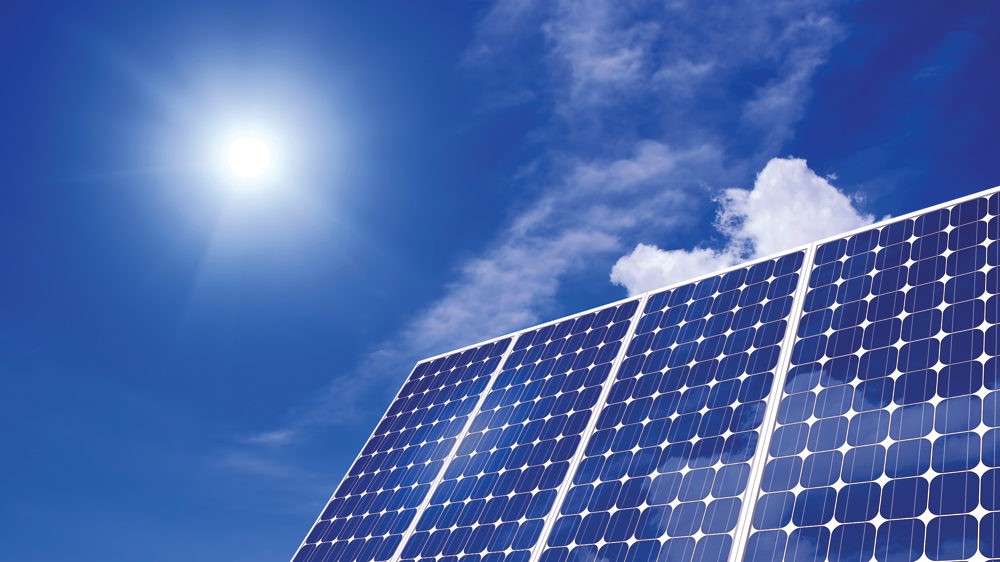Solar Panel: No Longer in its Infancy!
By EPR Magazine Editorial July 6, 2018 2:27 pm IST
By EPR Magazine Editorial July 6, 2018 2:27 pm IST

Domestically manufacturing solar panels will put India in the same league as the juggernaut Chinese manufacturers. Incentivizing this ‘infant industry’ will enable a strong industrial base, establishing India as a global energy hub.
Solar power is a strategic need for India as it has the potential to save roughly $20 billion in fossil fuel imports annually by 2030. A sustainable domestic manufacturing industry can save $42 billion in equipment imports by 2030.
The country is not equipped with manufacturing base for the upstream stages of the solar PV manufacturing chain. There is a lack of incorporated setup, economies of scale and modern technology, ensuing in escalated production costs. The prices of domestic solar equipment are less competitive in comparison of foreign manufacturers, particularly China.
There is a need of around 2 GW of solar that must be installed under India’s Domestic Content Requirement (DCR) scheme. On the other hand, as per World Trade Organization ruling, the DCR provision has been scrapped in future tenders, which are not for public sector undertaking (PSU) manufacturers.
Domestic manufacturers are, thus, exclusively dependent upon the planned central public sector undertakings (CPSU) scheme and the defense scheme, which focuses on 300 MW of solar.
Status of solar panel manufacturing industry in India
Nimish Jain, Head of Global Sales, Modules, Vikram Solar says, “Indian solar panel manufacturing industry is very eagerly contributing to national and global solar revolution. Support from government in policy development, financial backing, subsidies, and land procurement has encouraged private entities to expand.“
However, it is important to note that more than 80 per cent of the module demand in the country has been met by imported modules, presenting a bill of $3 bn in 2017. This has allowed foreign suppliers to control the domestic market, pushing out domestic manufacturers. Besides, this influx of imported modules has brought question of solar module quality that puts solar project reliability and energy security on unstable grounds, adds Jain.
“Delays in imposing anti-dumping duty on imported modules still hurt the domestic industry. Besides this, there are internal issues such as PPA renegotiations, lack of focus on exporting solar modules, delays in introducing manufacturing policy, lack of R&D, delays in refunding taxes while imposing GST. States failing to reach RPO obligation, falling tariffs, lack of DCR category projects, delays in project awarding after completion of auction, lack of flexible financing, and lack of uniform policy are slowing down solar projects, thus hurting solar module manufacturers”, Jain further adds.
More investment, policy development, and encouraging domestic capacity enhancement is needed for India to win the global race towards becoming the next energy super power.
Krishnendu Mukherjee, COO, Sova Solar Ltd says, “India has become a hub for the solar industry. Globally, all the countries now a days are targeting the Indian Solar Market for their niche market. From that aspect, Indian Solar Manufacturing industry has a very good future potential. The module manufacturing capacity should be augmented and domestic manufacturers have to work rigorously to increase its volume to achieve competitiveness and to make their self technologically upgraded. If the foreign company would come and set up solar module manufacturing plant here in India, with a complete backward integration under the Make in India policy, then our economy will enjoy the benefit of multiple growths in the GDP.”
India will find its strength to combat with the foreign challenges. Backward integration of solar module manufacturing has become essential to make the solar panel manufacturing status more smooth and comfortable. Our government has to take some fruitful initiative without further delay.
Jeetendra Saraf, Founder, Newtronics Green Energy says, “The energy sector in India has always been a topic for discussion and debate among experts, observers, analysts, industry players and magnates, besides others.”
The potential for solar energy capacity in India is enormous. The majority of the country’s tropical landmass is located optimally for peak solar radiation. The World Bank has described India as having “one of the best conditions in the world to capture and use solar energy”. MNRE has pegged the country’s total solar power potential at nearly 750GW, with 142 GW of solar resource available in the state of Rajasthan alone.
More than 80 per cent of the module demand in the country has been met by imported modules. This has allowed foreign suppliers to control the domestic market, pushing out domestic manufacturers.Backward integration of solar module manufacturing has become essential to make the solar panel manufacturing status more smooth and comfortable.
Krishnendu Mukherjee, COO, Sova Solar Ltd
The Indian government could look forward to improving its presence in the renewable energy sector, as well as raise the bar in terms of employing the manufacturing at home.
Jeetendra Saraf, Founder, Newtronics Green Energy
We use cookies to personalize your experience. By continuing to visit this website you agree to our Terms & Conditions, Privacy Policy and Cookie Policy.